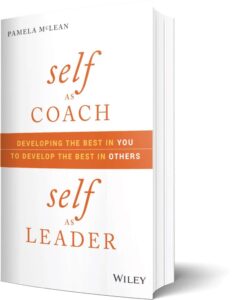Agile Coach Question - "Who are you?"
Posted By - Jeff Davis

Agile Coach Questions
For those familiar with professional coaching or even the world of agile coaching, you will recognize a powerful question when you see it, or hear it. And asking “Who are you” is indeed a powerful question!
If you consider yourself a ScrumMaster, Product Owner, Developer, or a people leader trying to support transformational change, then this is one of the best questions to lead us into self-awareness, a key ingredient to shift ourselves into commitment that produces lasting changes having emerged due to intrinsic motivations rather than often-failed extrinsic-only attempts.
When you manage to control the clock and slow down your life’s hectic pace long enough, you give yourself a gift. The gift of reflection. Next question is, will you invest a little more time to open that gift? Are you ready to see your true reflection during that moment of reflection? What surprising image of yourself begins to emerge once you consider letting go of any former, fictional facsimile? How much resistance are you starting to struggle with as your secret pride or perfectionism tries to hold you back from revealing more of who you really are?
It takes humility, it takes courage, and you can do it! Facing the reality of who you are requires you to think of your past, your present, your influences, your training, your worldview, your values, your principles, and especially your flaws, pain, and failures. What new revelations start to emerge for you? What do your eyes now see by accepting reality of a blindspot suggested by a loved one?
Perhaps your imagination is rediscovered and ignites a dream of what you still hope to become in the future. What sort of changes will you need to face? What sorts of people are in your life to help you change? Like Ceri Newton-Sargunar’s article might ask you, what small steps toward that change are you ready to take first? When will you start? Who will you seek for help and accountability? Also, consider this excellent article by Emma Burt on ways of developing the habit of journaling, which might prove helpful to you as a tangible way to better explore the gift of reflection.
Oftentimes, we may already have an inkling of self-awareness, but then some external event happens to seriously undermine or challenge our current beliefs and self image. A new job/role, a new team, a new idea, a new relationship, a different viewpoint, an unfamiliar culture, harsh criticism, or even the emotional wounds caused by a loved one or friend during a personal crisis or argument. Enter feedback – that collection of words from other people, but especially words (truthful or false) we speak to ourselves within our own inner narrative. Feedback of all sorts is daily pouring into our senses, whether solicited or unsolicited. If we lack any helpful mental models or techniques to help us offset cognitive bias, then we are more likely to encounter greater levels of stress amidst the overwhelming influx of feedback.
One such model we can borrow comes from the world of communications theory, and it’s called the Johari Window Model. I’ve included a link to help you study it and consider incorporating it into your life. Another great model to explore comes from Pamela McLean of the Hudson Institute and is referred to as the six dimensions or meta-skills of self-awareness.

You’re invited to learn more about yourself by carving out some quiet time, try some journaling, and explore some mental models like the Johari Window or the Six Dimensions meta-skills that might help more self-aware as you curiously explore the question “Who are you?” I hope you discover new levels of courage and vulnerability to share more of your values, beliefs, gifts, and insights with others. As you do, perhaps you’ll find your home, work, and other areas of life experience deeper levels of conversation, empathy, and contentment. In fact, you might even decide to ask someone else that same powerful question when you sense the moment is right for them: “Who are you?”
If you desire more growth in self-discovery in order to help others unlock their potential, then consider signing up for one of our Agile Mastery Institute Pathways programs. The 6-month expedition of professional growth will help you learn how to make better sense of a situation, clarify the context, and develop the nuances of skill that will lead yourself and others into making more coherent judgements and valuable outcomes.
*special thanks to Steve Crago for introducing me to Johari Window and many other powerful coaching models!
For further reading & growth:
Johari Window – as taught by Alex Lyons
self as COACH, self as LEADER – Pamela McLean
Use of Self as Scrum Master – Rohit Gautam
Top Tips for Coaching an Agile Team – Geoff Watts





